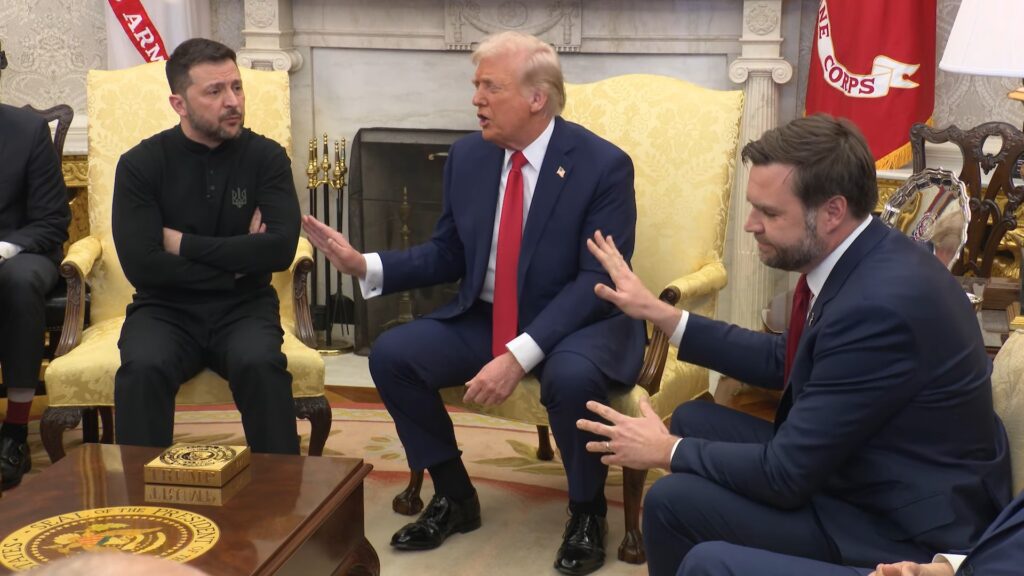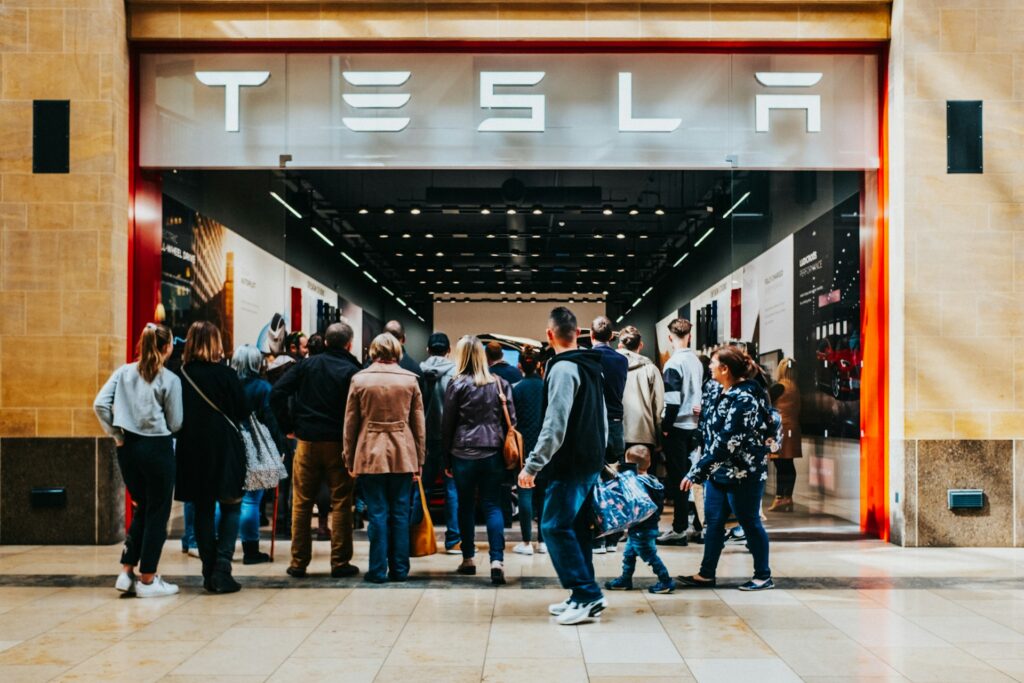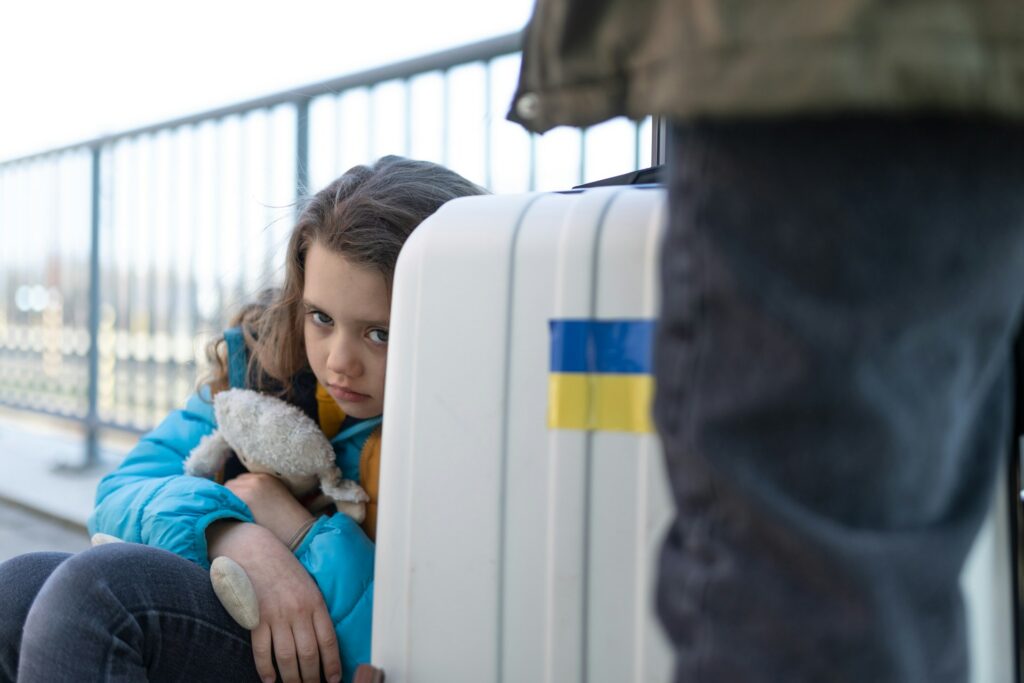In a world driven by profit and power, have we forgotten our collective responsibility to prevent war, support the vulnerable, and live by the values we preach?
Fellow humans, we can no longer hide from or ignore reality.
It’s been four months since the inauguration of President Donald Trump – an event that shook the Western world. For some, it was the promise of long-awaited change; for others, a nightmare come true. But no matter where we stand, one thing is clear: this is our world now, and we must confront it.
President Trump, along with his tech ally Elon Musk, continues to disrupt global politics and industry. Their moves generate both chaos and change – some decisions will be reversed, others irreversible. As events accelerate, we must brace ourselves for the long-term consequences of choices made too fast to undo.
One of Trump’s signature campaign promises was to end the war in Ukraine. Though a potential agreement looms, the outcome remains uncertain. Across Europe, Ukraine and the Baltic states, reactions have been swift and mixed.

What we must all understand is this: for the next four years, the current US leadership is in place, and for Estonia, Latvia, Lithuania, and Ukraine, Russia will remain their neighbour.
In recent months, I’ve participated in numerous international meetings and private conversations – each one circling around the same painful questions. I’ve heard anger, bitterness and disillusionment. A European diplomat bluntly stated, “People are so stupid.” Another added, “Americans are so stupid,” while someone else said, “You should be embarrassed to be American.” These statements are not just cruel – they reflect a growing sense of helplessness and disconnection.
In one meeting, an American professor reminded us of a sobering fact: when Russia occupied Crimea in 2014, neither Europe nor the US offered Ukraine meaningful support. Many Western businesses continued to profit from ties with Russia for years after that illegal invasion – and some still do, even today.

This is the hard truth: war is often driven by power and profit. For many, conflict is a business – an opportunity to sell goods, services, or weapons. It’s a dark reality we rarely confront, even as it fuels ongoing suffering. Yet we act surprised when politics, business and war are deeply entwined.
But this isn’t just about money. It’s about the moral choices we make every day.
Are we willing to champion values like freedom, equality and solidarity in public – while privately supporting systems built on greed and exploitation? Are we willing to question our own comforts?
I witnessed one such moment during a discussion about Elon Musk. When asked if they’d stop driving a Tesla, someone replied: “No, I have five in my family. I love the car. Elon Musk has changed. He’s earned his success.”
But the professor offered a sharper perspective: even if Musk has changed, supporting his ventures sustains a system of power that benefits a few at the expense of many. Refusing to give up comfort, even when it contradicts our values, reveals just how difficult true responsibility can be.

Our society doesn’t measure success by how the weakest among us are faring. Instead, we idolize the richest 0.001%. But a healthy society should be judged by how it treats its most vulnerable – by whether the poor, the displaced, the voiceless, are heard and protected.
We must stop ignoring the growing gap between the rich and the poor. We must recognise how this divide threatens our shared future. What we do today, as individuals and as communities, will shape the world tomorrow.
So, what will you do tomorrow? How will you think? How will you act?
The war in Ukraine is over.
I lived. Many did not. And now we stand at a crossroads: do we revert to yesterday’s comforts, blind to the risks that once again lead us to the brink of war? What matters most – another promotion on a spreadsheet, another purchase we don’t need, another hour spent with machines instead of one another?

We are told to embrace the age of automation – to let machines cradle our children, compose our verses, even guide our choices. Let them take over, as we slip into passivity, asking only for more. But a society that demands more while doing less cannot endure.
Pause.
Do you want to be happy, to be well, tomorrow? Then begin by asking: what must I change – in thought, in word, in deed – to make war not just impossible, but inconceivable? How can I live in a way that fosters peace, empathy, and responsibility?
The truth remains: I must become the change I wish to see in the world.
The opinions in this article are those of the author.

